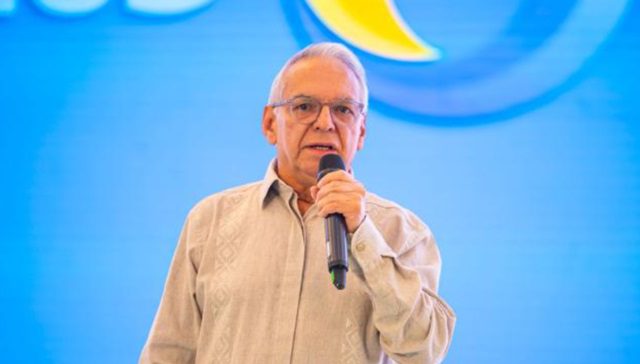BTN News: In a significant move to address ongoing energy challenges, the Colombian government has announced its intervention in the operations of Air-e, an energy distribution company serving the Atlántico, La Guajira, and Magdalena regions. This decision, highlighted by Finance Minister Ricardo Bonilla during a conference in Cartagena, stems from mounting concerns over the company’s financial instability, rising energy tariffs, and unaddressed infrastructure investments. As the nation grapples with a looming energy crisis, the government aims to ensure continuity of service while addressing systemic financial issues affecting both the provider and its consumers.
Air-e’s Financial Troubles Lead to Government Intervention
The government’s decision to step in comes after it was revealed that Air-e has been struggling with severe financial losses. These are attributed to several factors, including significant “black losses” — energy that is consumed but not paid for — and unfulfilled investment commitments. As Minister Bonilla explained, “The problem of Air-e is much more complicated. It’s not just about subsidies, but also about the investments they didn’t make, which result in very high black losses that are impacting the tariff.”
Key Factors Driving Energy Costs in Northern Colombia
Three major issues are currently impacting energy costs for users in the Colombian Caribbean region. First, there are the “black losses,” or energy theft and technical losses. Second, the cost of energy generation purchased at market prices has surged. Finally, an “option tariff” was being managed through credits provided by Findeter, a development bank, to Air-e. These combined factors have led to increasing energy prices, with a recent announcement of a 9% increase for residential services.
Concerns Over Service Disruption and Financial Stability
The urgency of the situation was underscored by Colombia’s Comptroller General, Carlos Hernán Rodríguez, who warned that if the Ministry of Finance, Ministry of Mines, and other relevant entities, such as the Energy and Gas Regulatory Commission (CREG) and the Superintendency of Public Services, do not take immediate corrective measures, there could be an imminent cessation of energy service in the region. “The nation does not have the necessary resources, as evidenced by delayed subsidy payments and a lack of commitment to settling debts,” Rodríguez cautioned.
Minister Bonilla: No Risk to Subsidy Payments Despite Delays
Addressing these concerns, Minister Bonilla assured the public that there is no risk of subsidy non-payment. “Subsidies are always paid with a time lag depending on the different commercial companies, but there is no risk,” he stated. He emphasized that the state remains committed to meeting its obligations despite delays.
The High Cost of Previous Energy Interventions
Reflecting on the past, Bonilla highlighted the costly intervention in Electricaribe, another energy provider, which cost over 10 trillion pesos. “Today, we have an Electricaribe 2. The real issue is that Air-e has reached its limit. The company itself has asked to be intervened,” he explained. The implication is clear: without substantial government action, the situation could mirror the expensive and prolonged challenges faced during the Electricaribe crisis.
Future Uncertainty for Another Energy Provider, Afinia
The minister also raised concerns about another energy provider, Afinia, hinting that it too might face challenges in the near future. “We need to review what will happen with Afinia because they do not have the capacity to provide the service,” Bonilla commented, pointing to broader systemic issues within the region’s energy sector.
Conclusion: Government Steps in to Secure Energy Supply Amid Crisis
As the Colombian government steps in to stabilize Air-e, it is clear that the broader energy landscape in the Caribbean region faces significant challenges. With rising costs, delayed subsidies, and looming threats to service continuity, the intervention reflects an urgent need for comprehensive reform and investment. The future of energy provision in Colombia’s northern regions will depend on how effectively the government can navigate these complex financial and operational hurdles.


